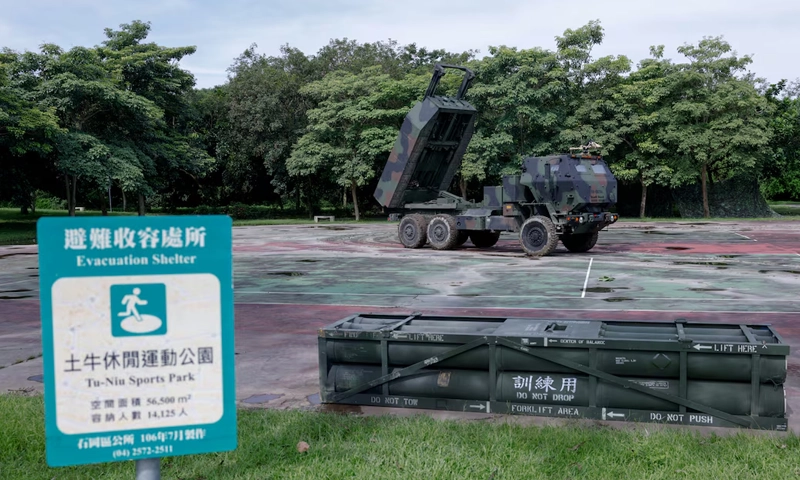- Web
- Feb 20, 2026
Taiwan deploys advanced US HIMARS rockets in annual drills
-

- Reuters
- Jul 12, 2025

TAICHUNG: Taiwan‘s military began deploying one of its newest and most precise strike weapons on Saturday as part of intensifying drills meant to showcase the island’s determination to resist any Chinese invasion.
Two armoured trucks with HIMARS – High Mobility Artillery Rocket Systems – were seen manoeuvring around the city of Taichung near Taiwan’s central coast on the fourth of 10 days of its most comprehensive annual Han Kuang exercises yet.
Fire simulation and some live-fire drills are expected next week as more air force planes and naval ships become involved.
In a wartime scenario, said a military officer at the site, it would be vital to conceal HIMARS from enemy aerial reconnaissance, satellites “or even enemy operatives behind our lines” until the order to fire was given.
China views democratically governed Taiwan as its own and has intensified military pressure around the island over the last five years, staging a string of intense war games and daily naval and air force patrols around the territory.
China surprised by India’s U-turn on Taiwan
Taiwan’s defence ministry said it had detected 14 Chinese air force sorties and nine naval ships around the island overnight. Nine of the sorties crossed the median line, the unofficial barrier between the two sides.
Taiwan rejects China’s sovereignty claims, with President Lai Ching-te saying only Taiwan’s people can decide their future.
China’s defence ministry said this week the Han Kuang drills were “nothing but a bluff” while its foreign ministry said its opposition to U.S.-Taiwan military ties was “consistent and very firm”.
Regional military attaches say the HIMARS deployment in a warlike exercise will be closely watched, given that they have been used extensively by Ukraine against Russian forces. Australia has also purchased the Lockheed Martin (LMT.N) systems.
Taiwan took delivery last year of the first 11 of 29 HIMARS units, testing them for the first time in May. With a range of about 300 km (190 miles), the weapons could strike coastal targets in China’s southern province of Fujian on the other side of the Taiwan Strait.
Taiwanese military analysts say the weapon would be used with its locally developed Thunderbolt 2000 launchers so Chinese forces could be targeted as they left port or attempted to land on Taiwan’s coast. A Thunderbolt unit was also seen in a park near the HIMARS units.
Senior Taiwanese military officials say the Han Kuang drills are unscripted and designed to replicate full combat conditions, starting with simulated enemy attacks on communications and command systems, leading to a full-blown invasion scenario.
Soldiers on Saturday also staged a blockade of the Tamsui River outside Taipei, deploying a string of explosive pontoons.
The drills aim to show China and the international community, including Taiwan’s key weapons supplier the U.S., that Taiwan is determined to defend itself against any Chinese attack or invasion, the officials say.
Meanwhile, the Pentagon is urging Japan and Australia to clarify what role they would play if the US and China went to war over Taiwan, the Financial Times reported on Saturday.
Elbridge Colby, the US under-secretary of defense for policy, has been pushing the matter during recent talks with defense officials of both countries, the report said, citing people familiar with the discussions.
According to the newspaper, the reported request caught both Tokyo and Canberra off guard, as the U.S. itself does not offer a blank cheque guarantee to defend Taiwan.
Reuters could not verify the report. The US department of defense did not immediately respond to a request for comment.
The US is Taiwan’s most important arms supplier, despite a lack of formal diplomatic ties. Taiwan has faced increased military pressure from China, including several rounds of war games, as Beijing seeks to assert its sovereignty claims over the island. Taiwan rejects China’s assertion of sovereignty.
Colby was deputy assistant secretary of defense for strategy and force development during President Donald Trump’s first term. Colby is known for arguing that the U.S. military should prioritize competition with China and shift its focus from the Middle East and Europe.




